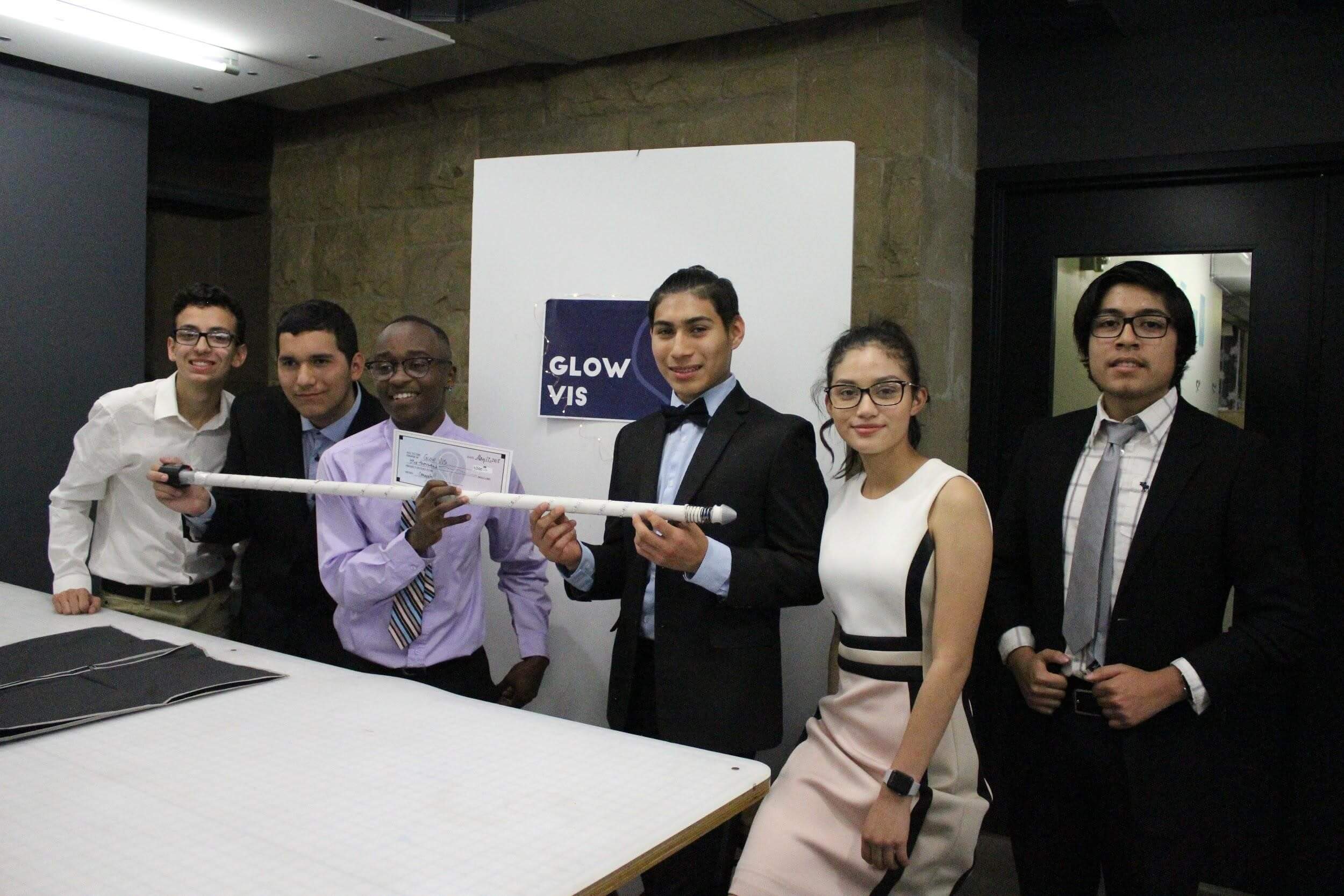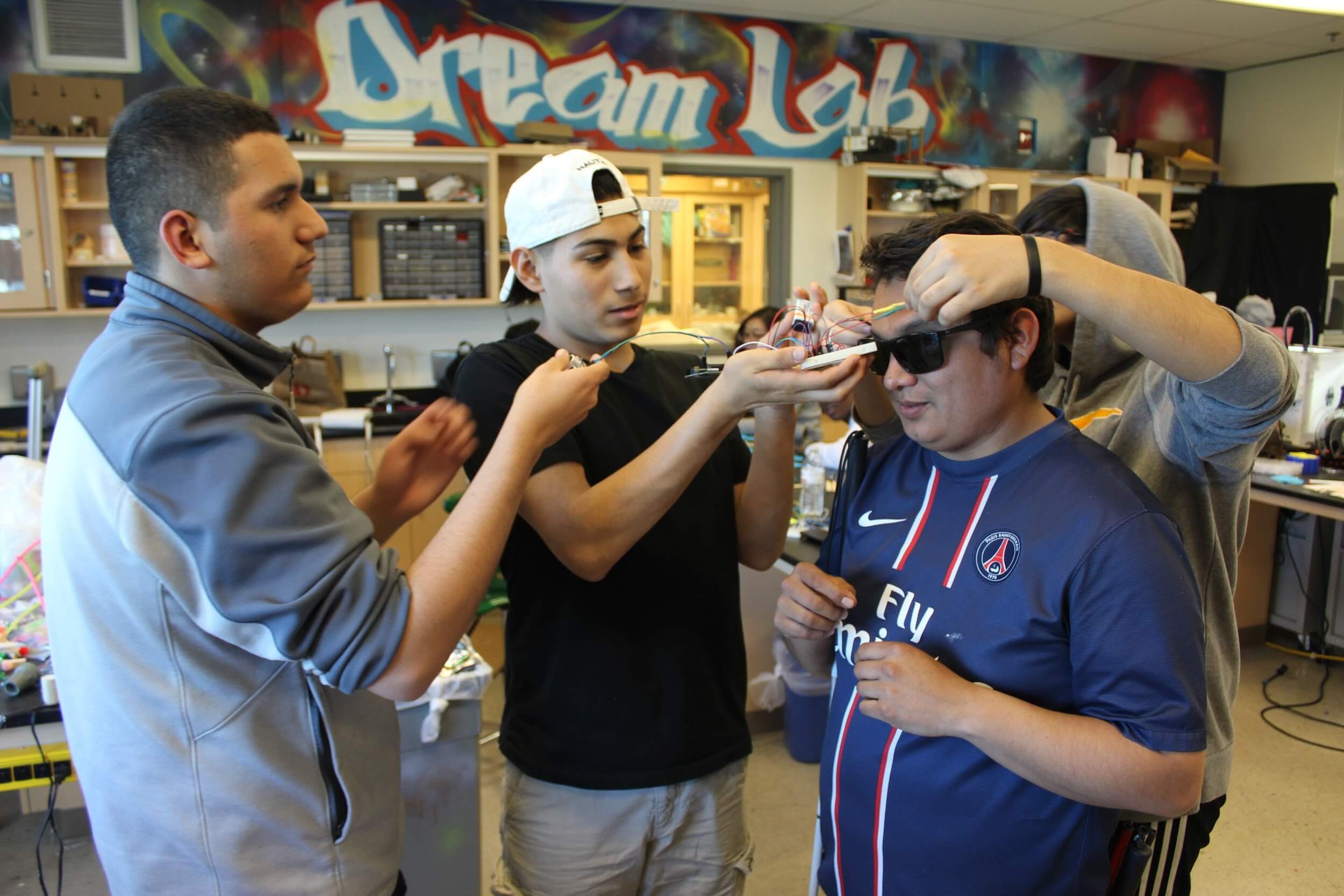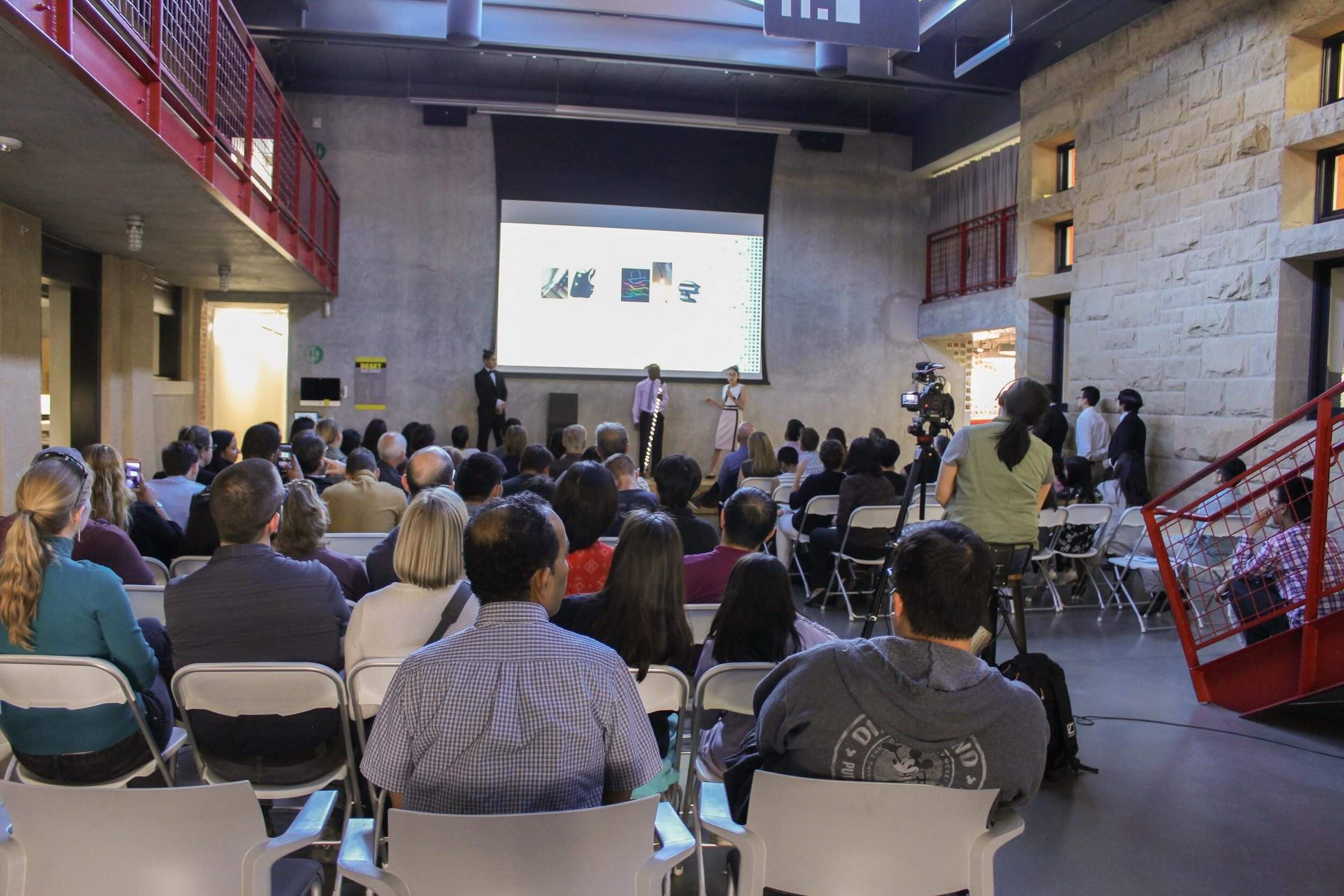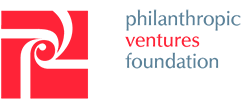Bay Area Inspire Awards: Project Invent
Guest blog post by Connie Liu, 2018 Bay Area Inspire Awardee
At the start of 2018, Philanthropic Ventures Foundation (PVF) awarded grants to six young Bay Area residents with fresh ideas for building better communities. These awards were made possible through the Bay Area Inspire Awards, which provides $5,000 grants to 18-30 year olds living in San Francisco, Alameda, and San Mateo Counties. Below is a report written by one of these awardees, Connie Liu. In her project, students tackle problems like homelessness and poor education and invent ways to combat these issues while developing design and engineering skills along the way.

Project Invent is a nonprofit that supports high school students nationwide to invent technology products that make a difference. Students spend the year identifying a problem, building a solution, and ultimately pitching their invention to leaders in Silicon Valley. From smart wallets that help the blind detect bill denominations to wearables that combat social anxiety, students invent solutions that get people the design they deserve and that teach students the skills and mindsets of lifetime changemakers.
Project Invent started in 2016 as a 9-person class at the Nueva School. The class soon grew into an after school program with over 30% of the student body enrolled. In 2018, the Bay Area Inspire Awards helped us bring the program to students in the city of East Palo Alto.
THE EXPERIENCE
In March, we brought Project Invent to East Palo Alto through a Saturday camp hosted at East Palo Alto Academy. After a full week of school, church, and jobs, six students from East Palo Alto Academy and Oxford Day Academy showed up all day every Saturday to invent to make a difference.
On the first day, they met Jimmy, a 29-year-old man in their community who is blind. Students started by asking Jimmy to walk them through a typical day. What challenges did he encounter? They heard about more obvious problems like bumping into obstacles, but also more surprising ones like having trouble figuring out which toothbrush was his. After hearing the challenges Jimmy faced, they brainstormed innovative ideas and started working to ideate, build, and make decisions, just like a small startup.
By the end of the program, students had built a blind cane 2.0 that featured strobing lights to increase user safety in the dark, and a shock absorber to prevent users from hurting themselves on the cane, a common problem with the current design. They had learned how to program, build circuits, solder, empathize with human needs, and more. And they had developed the confidence that they could make a change.
They presented their work at Demo Day, a public event we host through Project Invent where we invite tech leaders and venture capitalists to hear team pitches and grant funding to promising projects. The EPAA team blew the competition out of the water and was awarded $1,000 to continue building their product.
In a final survey, students shared their takeaways:
“This camp was a meaningful experience and changed how I see the world.”
“I don’t see myself doing anything else than being here every Saturday.”
100% reported that they were changed by their interactions with the blind community member they worked with. 100% reported they would recommend the program to a friend. Sounds like the program was a success!


ACCOMPLISHMENTS
After the success of the East Palo Alto program, we decided to expand Project Invent to teams across the country. We just launched teams in 10 cities across the US, from Provo, Utah to Miami, Florida to San Mateo, California.
This August, we also ran a 4-day teacher training for 10 teachers in the Bay Area to learn how to integrate real-world problem solving and making into their own classrooms. We designed and released a curriculum with 200+ downloads worldwide.
NEXT STEPS
This year, we intend to work closely with our 10 teams and learn what supports and resources each team needs to succeed. We intentionally chose a diverse array of teams representing students from many different backgrounds. From a team of all teenage mothers to teams in low-income cities to teams in rural areas, our goal is to ensure students receive a transformative invention experience, no matter where they are based.
The year after, we plan to grow from 10 to 100 teams, impacting students in 30+ states and connecting the wealth and opportunity of Silicon Valley to hundreds of students. Currently, we are completely volunteer-run and hope to raise the funding to hire our first paid team members to coordinate team support, so teams can receive the mentorship they need, no matter where they are in the country.
By 2030, we aim to be in every major city in the US. Just like how every city has a city council, every community needs their own youth corps innovating towards a better future. My vision is for Project Invent to be the golden standard for youth civic engagement and learning.





